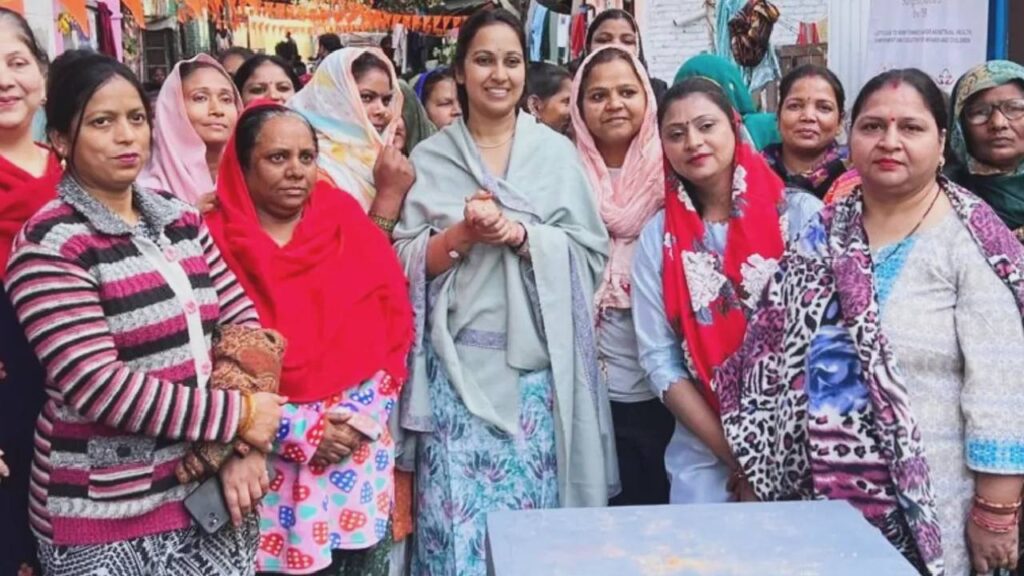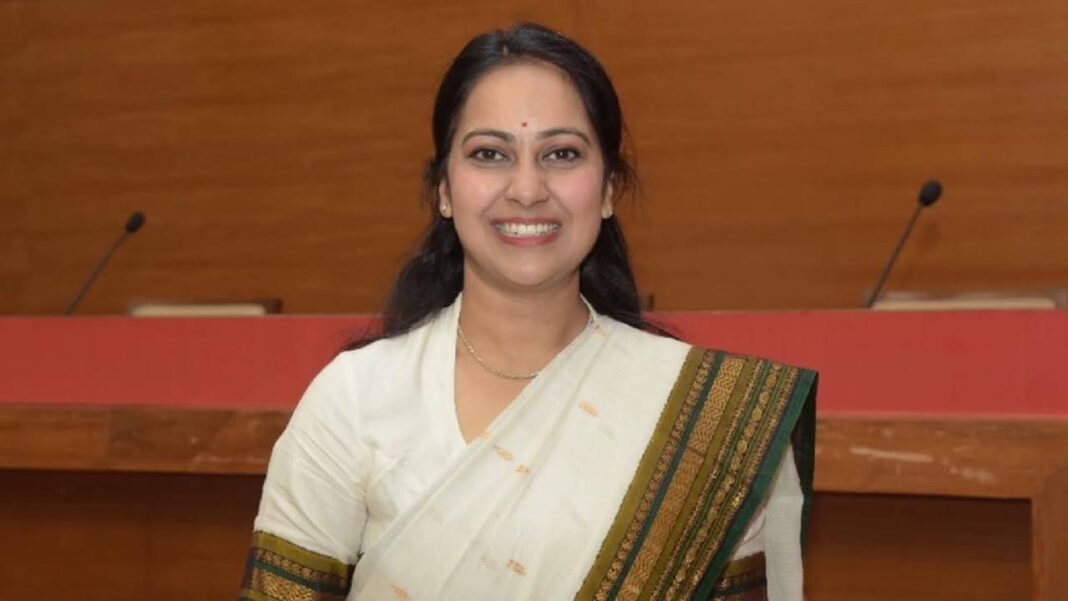In a heartfelt conversation with The Pioneer, Priyal Bharadwaj reflects on transformative experiences, the invisible crisis of menstrual hygiene during COVID, the untapped power of rural women and why fashion can be a feminist tool for change
Tejal Sinha
tejal.sinha30@gmail.com
In a world where leadership is often confined to boardrooms or political podiums, Priyal Bhardwaj leads from the heart of communities — from dusty village courtyards to crowded policy chambers. A changemaker who effortlessly straddles the worlds of grassroots activism, ethical fashion, and political leadership, she is not bound by convention but driven by conviction. As the General Secretary of BJP Mahila Morcha (Delhi), she champions women’s dignity and empowerment not just through speeches, but through action — be it mobilising menstrual hygiene during the pandemic, training women entrepreneurs in remote corners, or reimagining fashion as a feminist tool. From fashion studios to rural self-help group meetings and from civic policy drafting rooms to menstrual hygiene camps, she has walked paths that most would consider disparate. But for her, they are all extensions of a singular mission — to create dignity, opportunity and agency for women across the spectrum.
What started as a career in fashion gradually unfolded into a life of purpose-driven change. “I didn’t plan this convergence of politics, fashion, and activism — it evolved, beautifully and unexpectedly,” she shares. Her foray into social work began while working closely with artisans and what followed was a deep dive into rural issues, grassroots mobilisation and eventually, policymaking. “I realised I didn’t have to choose. I could wear a handwoven saree stitched by a woman in a small town, speak on menstrual health, and draft a civic policy — all in one day.”

One of the most transformative experiences for Bhardwaj has been watching women at the grassroots evolve into community leaders. Recalling a memorable moment, she says, “I remember a menstrual hygiene camp where a local SHG member, who used to sit silently in meetings, stood up and explained the importance of sanitary pads to an entire village.” For her, such moments aren’t just inspiring — they affirm her core belief: when grassroots women are supported, they don’t just change their own lives; they uplift entire communities.
Through her initiative Sangini Saheli, Bhardwaj and her team take a listening-first approach to identify issues like healthcare and education. “We sit down with women, community elders and local changemakers to understand their everyday struggles,” she explains. Rather than offering short-term fixes, the team emphasizes sustainable solutions. “Instead of simply distributing sanitary pads, we train women to make and sell eco-friendly ones. If education is lacking, we set up local classes with trained women from the community. For us, sustainability means building systems that function even without us.”
One of the biggest misconceptions that urban India holds about rural women, according to her, is that they are passive or incapable of change. “They’re not bound by tradition — they’re bound by access,” she states. “Once you offer them tools, support, and dignity, they create magic.” She’s met rural women who are “fiercely intelligent, adaptable, and hungry for growth,” ready to shatter assumptions and lead transformative journeys of their own. Among the many stories that have left a mark on her is that of Geeta, a woman who joined one of the self-help groups with little confidence and no skills. “She learned basic tailoring, started making small items, and today leads a group of women producing garments. When I visited her last, she said, ‘Didi, now my daughter goes to English school — and I stitched her uniform myself.’” For her, that moment encapsulated everything she works for — dignity, pride and generational change.
The pandemic posed multiple challenges, but the most invisible among them was menstrual hygiene. “Schools shut down, supply chains broke and sanitary pads became unavailable or unaffordable,” she says. Worse, many families considered sanitary pads taboo. “But what pulled us through was collaboration,” she explains. With over 100 volunteers across 17 states, her network — supported by police officers, IAS officers, civil society, and SHG women — managed to deliver over 12.5 lakh sanitary pads. “Every time someone said ‘this isn’t essential,’ we proved them wrong by showing up again and again.”
Priyal’s passion for fashion never waned — instead, it evolved into a tool for activism through her ethical brand, LabelPB. “When I started working closely with artisans, I realised the fashion industry often benefits from their skill without valuing their lives,” she says. With LabelPB, she aimed to change that dynamic — “to weave dignity, tradition, and empowerment into every thread.” She collaborates directly with artisan clusters, ensuring fair pay, safe conditions, and shared ownership. “Our artisans even WhatsApp me their latest motifs — that’s the kind of trust we share,” she adds.
Creativity and social responsibility aren’t opposing forces for her — they’re complementary. “Creativity becomes more meaningful when it’s rooted in purpose,” she says. From handwoven fabrics to sustainable packaging, every design decision is made with impact in mind. “A garment isn’t complete if it doesn’t uplift someone along the way.”
Can fashion be a feminist statement? “Absolutely,” she asserts adding, “What we wear is a statement — of identity, power, and belonging.” LabelPB disrupts conventional fashion narratives by celebrating rural women as creators and influencers. “Our models come from all walks of life. Our designs carry stories — of strength, softness, struggle, and pride. Every piece puts women at the center — as storytellers, artists and changemakers.”
In her political life too, she leads with empathy. “A changemaker doesn’t need a title — they just need courage and consistency,” she says. For her, real leadership lies not in having all the answers but in creating space for others to grow. “In my early years, I tried to control every detail — and it burned me out. Now I delegate with trust, ask questions and surround myself with people smarter than me.”
When engaging with youth, she emphasises authenticity and relatability. “They’re not looking for perfect people; they’re looking for honest ones,” she says. During campaigns, she simplifies complex policy by linking it to real life. “If it’s a budget policy, I explain it like a household budget. If it’s healthcare, I talk about how it helps someone afford medicine.”
Asked about the legacy she hopes to leave, Bhardwaj’s answer is clear and heartfelt. “I want every young girl to know that she is not defined by her circumstances — she is defined by her courage.” Whether it’s leading a self-help group, modeling a handloom saree, or voicing policy concerns, she wants Indian girls to believe they can be artists, activists, policymakers — or all three at once. “Because that’s what I chose to be.”
In a world quick to pigeonhole women, Priyal Bhardwaj chooses to wear multiple hats — and sarees — with equal conviction. And in doing so, she not only redefines leadership but inspires a generation to rise, stitch by empowered stitch.




